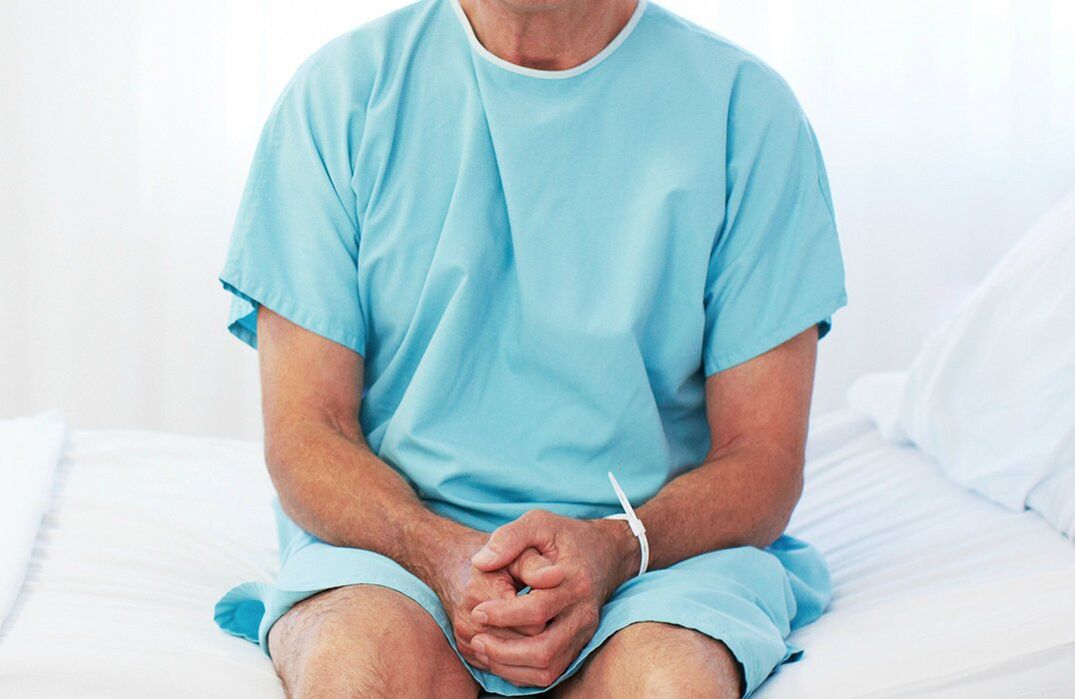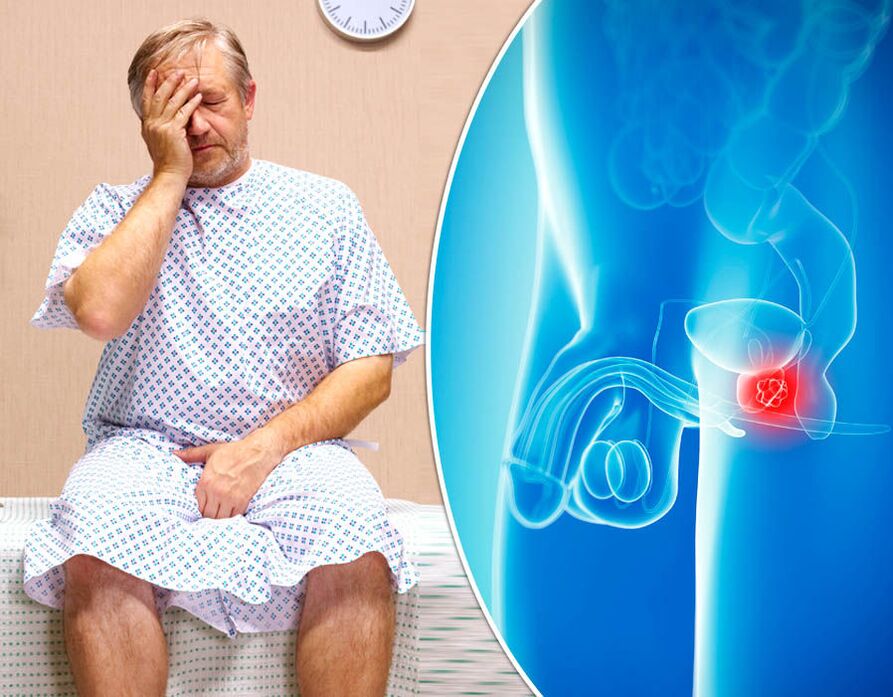The prostate gland (prostate) is an important part of the male reproductive system: it creates a secret that offers the motor activity and livelihood of sperm. The secret contains enzymes, immunoglobulins, citric acid, vitamins and zinces. In the event of a violation of the activity of the prostate, the sexual function of the male body decreases. The most common prostate disease is its inflammation - prostatitis. He is usually exposed to him at the age of 20 to 50. The older the man, the higher the risk of incidence. Prostatitis goes in acute or chronic form, is often difficult to diagnose and can lead to persistent prostate dysfunction. The most difficult consequences of prostatitis are infertility and prostate cancer.

About half of the capable men are sick worldwide because of chronic prostatitis. Modern medicine is very active in the treatment of prostatitis. In reality, prostatitis is successfully treated - it is only important to diagnose it as early as possible. As soon as the initial signs of prostatitis occur, it is necessary to contact a urologist. Outpatient treatment is possible in the early stages, in advanced cases the patient is hospitalized. Treatment with both versions is one to two weeks, according to which the patient has to take preventive measures in order to prevent new inflammation of the prostate gland. Relapses of the frequency of chronic prostatitis - over 50%
Types of prostatitis
Depending on the causes and the clinical image of the course of the disease, the following types of prostatitis are distinguished:
Acute prostatitis- The serious leakage of the prostate gland, which occurs due to the bacterial infection of your tissue. Many bacteria are part of the normal microflora of the body and are constantly in the intestine and skin. However, if the prostate enters the tissue due to the non -compliance with the rules of elementary hygiene and other causes, they can cause the development of an acute inflammatory process. Acute prostatitis is extremely rare. The treatment should be carried out in a hospital.
Chronic bacterial prostatitis- is a third of all cases of inflammation of the prostate. This form of prostatitis is dangerous, since painful signs can let off spontaneously without treatment. However, this means no healing - after a while there is a deterioration that takes place more painful every time. If you do not keep doing anything, there is a risk that astrige herd, the deposition of stones in the prostate, the inflammation of the bladder and other serious complications to cancer will be developed.
Chronic prostatitis/chronic pelvic pain syndrome. A form of prostatitis, which is difficult to diagnose, shows constant pain in the pelvic area, which takes more than three months. On the way, neurological disorders and psycho -emotional disorders can be observed. The diagnosis is done by exclusion, analyzes may not show any signs of inflammation.
Asymptomatic chronic prostatitis. It is asymptomatic and can be shown in accordance with the results of the urine analysis that show the high concentration of leukocytes and bacteria.
Chronic granulomatous prostatitis. Usually it is a side effect of the drug treatment of other diseases or the radiation of the prostate. During this disease, the tissue of the prostate gland is gradually replaced by connective tissue, and the iron stops working.

Symptoms of the disease
In men who suffer from various forms of prostatitis, frequent symptoms can be distinguished. This includes: difficulties in urinating due to the compression of the blade channel with an inflamed prostate. Pain and burning can be observed when urinating. Violation of erection mechanism, weakening of orgasm. Accelerated ejaculation. Reduce potency. Intellectual depression, fear. A mental mood for recovery is very important for a patient of prostatitis. Stress also weakens the body and complicated treatment, which leads to even greater oppression. It is difficult for the patient to break out of this closed circle, so antidepressants are sometimes prescribed with prostatitis.
The causes of prostatitis
The causes of prostatitis disease are very different, but are mainly associated with the neglect of a man to his health: sexually transmitted infections; Violation of blood circulation in the pelvic organs, for example due to a seated lifestyle; Extended sexual abstinence, interrupted sexual intercourse or artificial extension of sexual intercourse; Impaired immunity; Frequent hypothermia, which is characteristic of lovers of extreme sports; Stress; hormonal imbalance; Lack of vitamins and trace elements; Non -compliance with personal hygiene rules.
Complications
Prostatitis gives men serious inconvenience: urine problems, reduced libido, impaired erectile function. If the patient does not receive sufficient treatment in time, he can develop with a probability of 40%infertility, since the prostate iron is no longer able to develop a secret in normal quantities and the necessary quality. Self -medication of prostatitis is unacceptable, as this can lead to a deterioration in the patient's condition and the occurrence of simultaneous diseases. For example, incorrectly prescribed antibiotics disadvantage the intestinal microflora and significantly reduce immunity, while the problem is not solved with the prostate gland. Other drugs mask only the disease and their symptoms and reinforce the situation. Therefore, prostatitis must be diagnosed and treated with an experienced specialist.

prevention
Preventive measures to prevent prostatitis are: careful compliance with personal hygiene; Regular sexual life; Healthy physical activity; Diet with sufficient protein content, vitamins and trace elements; increasing general immunity; Abstinence in alcohol consumption and smoking; timely treatment of infectious diseases; Reduction of the overall level of daily stress. Due to the large number of prostatitis and provocative factors of their development, men should be careful with their well -being and attend a urologist at least twice a year. This is particularly important after forty years.





















